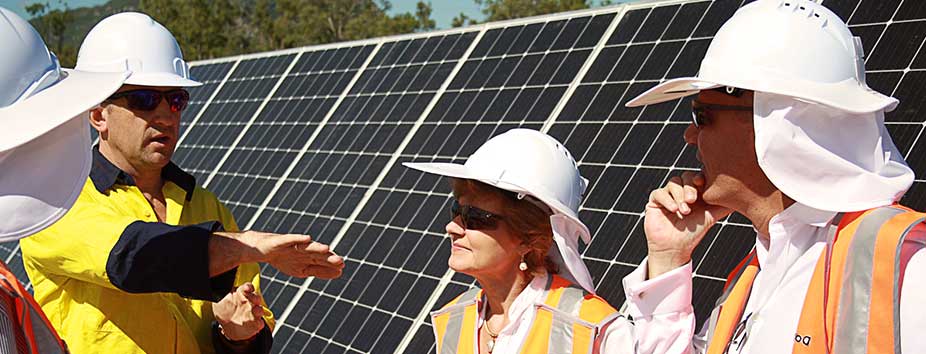| Priority areas |
Goals |
Half Year 2018 performance |
| Helping people make better financial decisions |
Help more people better understand their financial position, improving their financial confidence |
- Continued to offer a range of products and services, including Westpac SmartPlan, an online tool to help customers manage their credit card balance and pay down their debts more easily; and Westpac Life, a flexible savings account that supports customers savings goals;
- Delivered a range of financial literacy programs to individuals, businesses, not-for-profit organisations and community groups through the Davidson Institute in Australia and through Managing Your Money program in New Zealand; and
- Delivered enhanced financial capability communication for different customer segments, including 406,000 children through Mathspace and Year 13 partnerships, 918,000 young Australians via The Cusp, 158,000 women through Ruby Connection and 2.5 million Australians aged 65+ via Starts at 60.
|
| Helping people by being there when it matters most to them |
Help people recover from financial hardship |
- 19,473 customers received hardship assistance from Westpac Group Assist.
|
| Help people lift out of a difficult time and recover stronger |
- Provided 65 relief packages for customers impacted by natural disasters across Australia, including bushfires in southern NSW and south east and south west Victoria, Cyclone Marcus in the Northern Territory and floods in northern Queensland.
|
| Helping our most vulnerable customers |
- Continued to work towards rolling out dementia-friendly banking across Group brands, following New Zealand and St.George.
|
| Helping people creating a prosperous nation |
Build the workforce of the future |
- Progressed the design of a learning and re-skilling program to support employees stay relevant in a rapidly changing workforce.
|
| Invest and back the people and ideas shaping Australia |
- Westpac Bicentennial Foundation paid $1.7 million in educational scholarships to 45 scholars in First Half 2018, bringing the total cohort of Westpac Scholars to 336;
- Westpac Foundation Social Scale-up Grants supported 10 social enterprises to create over 234 jobs1 for vulnerable Australians;
- During the First Half 2018 134 microenterprises, including 39 Indigenous businesses, were established, through our Many Rivers partnership, 1,681 jobs1 were created;
- Westpac has directly invested in 25 early stage companies, including 20 through Reinventure. To date, $100 million has been committed to Reinventure as part of two funds; and
- Continued the Businesses of Tomorrow program, with the next recipients to be announced in June 2018.
|
| Back the growth of climate change solutions |
- Increased committed exposure to climate change solutions and environmental services relative to FY17, taking total committed exposure to more than $8.5 billion, progressing towards the 2020 target of $10 billion; and
- Arranged and issued climate-related bonds of $1.7 billion supporting the Group’s funding for climate change solution.
|
| Back the growth of housing affordability solutions |
- Lent over $1.34 billion to the social and affordable housing sector, up from $1.32 billion at 30 September 2017.
|
| Bring together partners and harness the Group capacity to tackle pressing social issues that matter most to the nation |
- Established a Vulnerable Customer Council, comprised of industry based consumer advocates to enable two-way dialogue on emerging issues and customers perspectives;
- Established a Small Business Customer Council which enables us to hear key issues and feedback from the small business community and discuss new initiatives for our small business customers; and
- Stakeholder Advisory Council meets three times per year to discuss emerging themes and issues, comprising of external social, environmental, governance, community and business leaders.
|
| A culture that is caring, inclusive and innovative |
Promote an inclusive society, where our workforce reflects our customers |
- Proportion of leadership roles held by women maintained at 50%; l Recruited an additional 86 employees who identify as Aboriginal or Torres Strait Islander peoples, maintaining Indigenous employment parity;
- Launched a neurodiversity internship program to support people on the Autism Spectrum to build a career with the Group; and
- Launched the Group’s 2018-2020 Inclusion and Diversity Strategy.
|
| Increase channels where customers can provide feedback |
- Multiple channels exist, including the Customer Advocate, Customer Council and the ‘Resonate Program’, designed to address specific pain points.
|
| Continuing to lead on the Sustainability fundamentals |
Employees |
- Achieved total recordable injury frequency rate of (TRIFR) 5.0 and lost time injury frequency rate (LTIFR) of 0.3.
|
| Human Rights |
- Released 2017 Slavery and Human Trafficking Statement; and
- Supported the introduction of comparable Australian legislation to the UK Modern Slavery Act.
|
| Sustainability Lending and Investment |
- BTFG refreshed its Responsible Investment Position Statement.
|
| Environment[1] |
- Maintained carbon neutral status and on track to achieve a 3% reduction in GHG emissions compared to Full Year 2017, and a reduction of 11% since 2016;
- Group paper consumption on track to achieve a 41% reduction in Full Year 2018 since 2016;
- Water consumption in all Australian workspaces on track for a 13% reduction, consuming 223,849 kL in First Half 2018; and
- Achieved 72% diversion of waste from landfill in Australian offices.
|
| Responsible Sourcing |
- $2.6 million sourced from diverse suppliers, including $1.7 million from Indigenous suppliers.
|
| Community & Social Impact |
- 6.7% employees participate in volunteering program and 50% in workplace giving.
|

